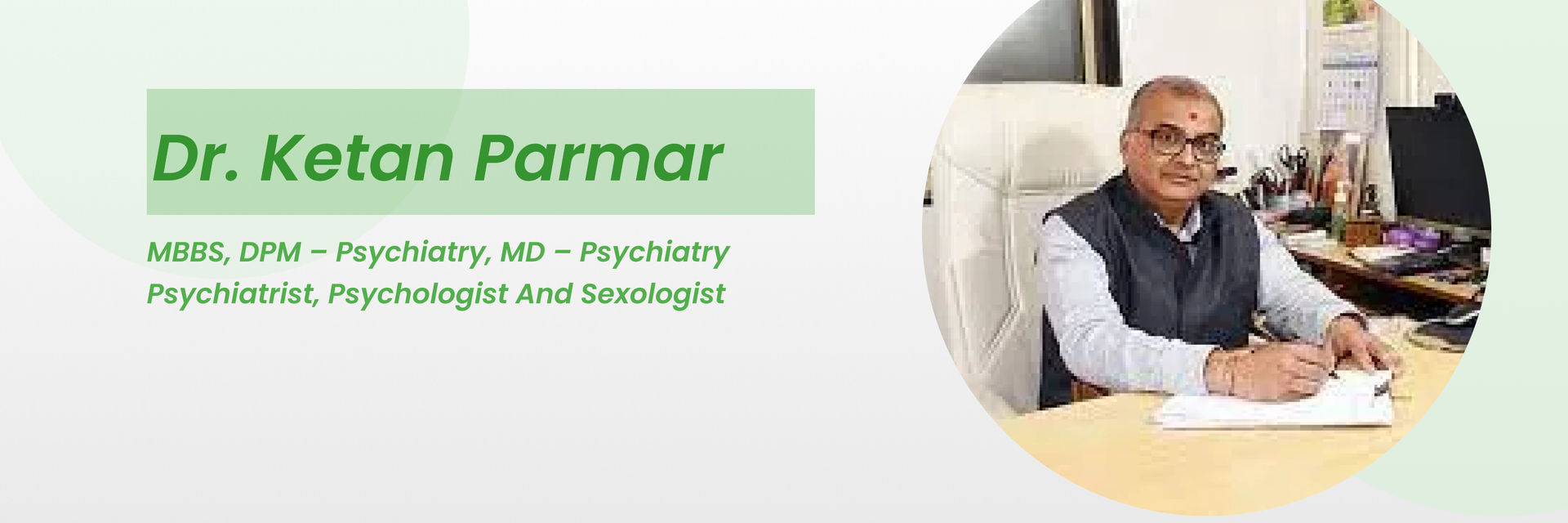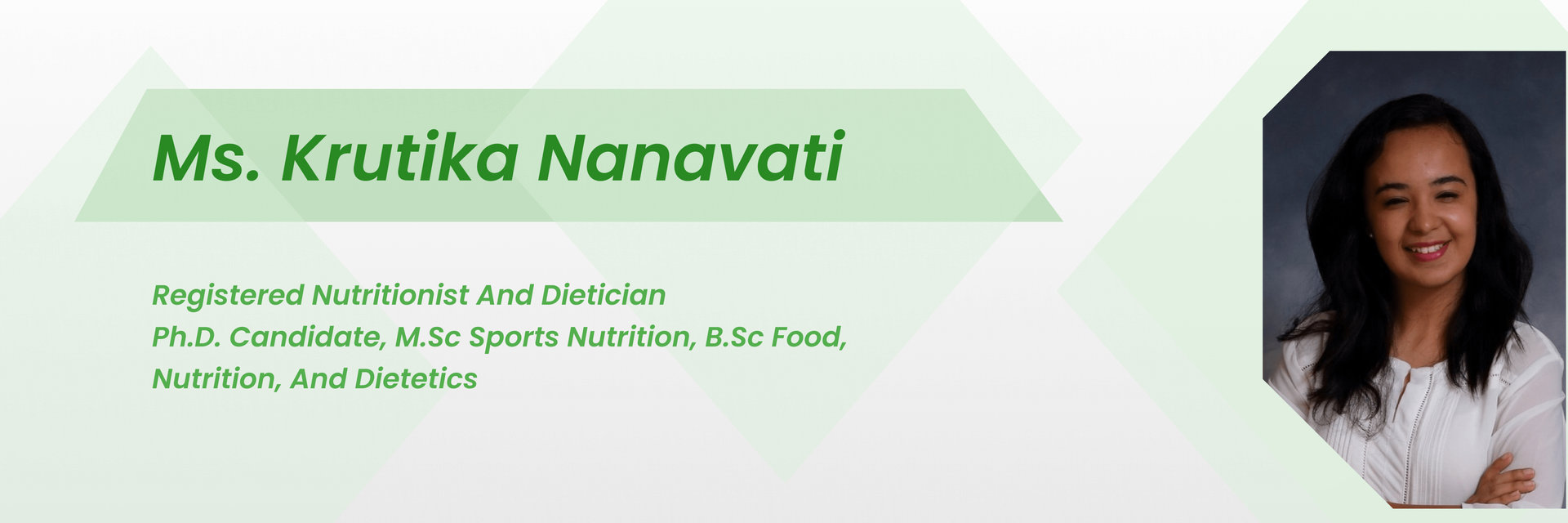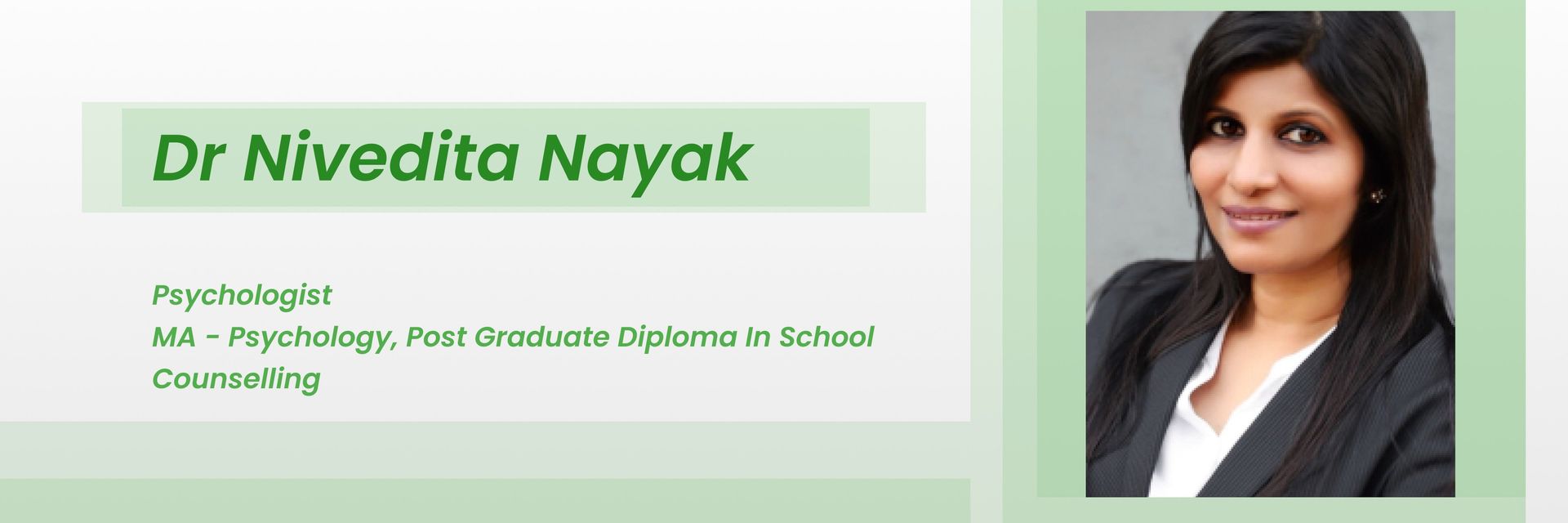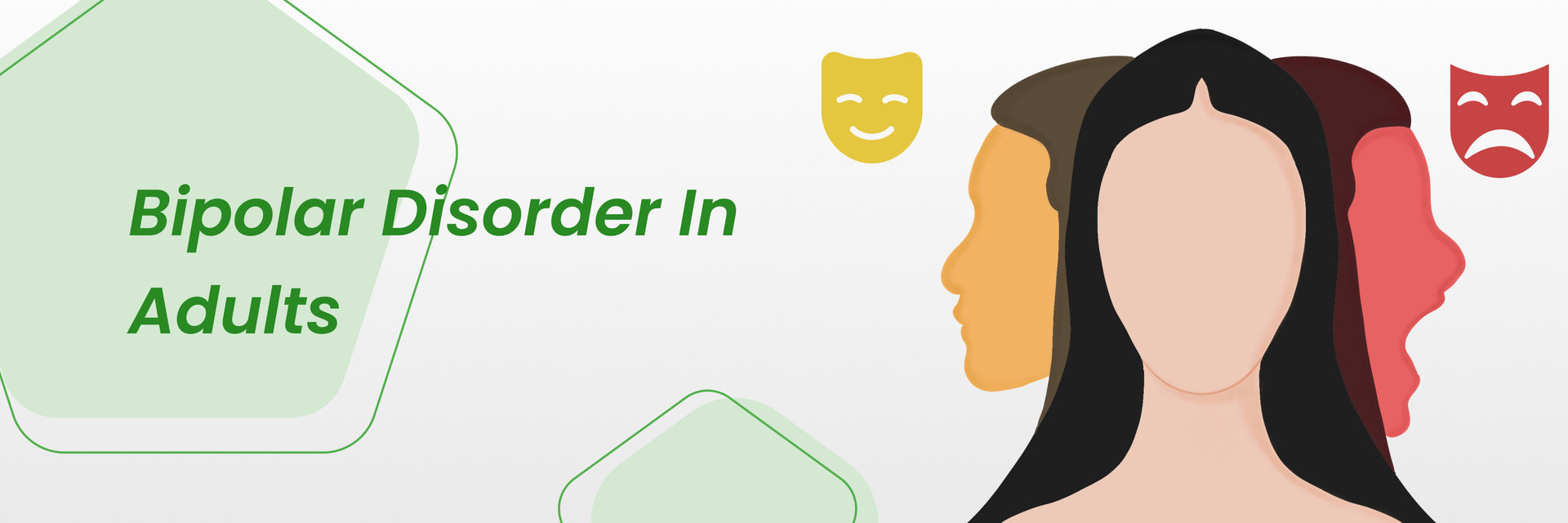Overview
ADHD counselling helps people with attention problems get better support. Trained therapists use special methods to teach coping skills and daily habits. Most people see big improvements in focus, relationships, and stress levels. Both kids and adults can benefit from this type of therapy.
Getting Started with ADHD Counselling
Living with ADHD can feel like your brain works differently than everyone else's. One minute you're super focused on something you love. The next minute you can't remember where you put your phone.
If you're reading this, you might be looking for help with ADHD. Maybe it's for yourself or someone you care about. Either way, you're making a smart choice by learning more. For personalized support, you can also book an online doctor consultation or connect with a healthcare professional to explore the right ADHD treatment options for you.
ADHD counselling has helped millions of people live better lives. The right therapist can teach you how to work with your brain instead of against it. This guide will show you everything you need to know about getting started.
What is ADHD Counselling?
ADHD counselling is a specialized form of therapy designed specifically for attention challenges. Professional counselling for ADHD helps people understand their unique brain patterns and develop effective coping strategies. This targeted approach makes a real difference in how people manage their daily lives.
Understanding the Basics
ADHD counselling is a special type of therapy for people with attention problems. Regular therapy might not understand how ADHD brains work differently. ADHD therapists know exactly what you're going through.
These counsellors get extra training to help people with ADHD. They understand that your brain isn't broken - it just works in its own way. They use this knowledge to create treatment plans that actually work.
How It's Different from Regular Therapy
ADHD therapy uses shorter sessions and more hands-on activities. Regular talk therapy might be too slow or boring for ADHD brains. ADHD counsellors know how to keep you engaged and focused.
They also understand that you might fidget, interrupt, or lose focus sometimes. This is normal for ADHD, and good therapists won't make you feel bad about it.
Types of ADHD Counselling Approaches
Different types of ADHD therapy work better for different people and situations. Effective ADHD treatment often combines multiple approaches to address various symptoms and challenges. Understanding your options helps you choose the best path forward for your specific needs.
Cognitive Behavioral Therapy (CBT)
CBT helps you change negative thoughts and bad habits. This form of cognitive therapy is one of the best treatments for ADHD that doctors recommend. CBT teaches you to catch yourself before making impulsive decisions.
You'll learn to recognize when your thoughts are making problems worse. Then you practice new ways of thinking that help instead of hurt. Most people see results within a few months of starting CBT.
Behavioral Therapy
Behavioral therapy focuses on changing specific actions and habits. This type of ADHD support works really well for kids but helps adults too. You learn new routines and get rewards for sticking to them.
Your therapist might help you set up reward systems at home or work. They also teach you how to break big tasks into smaller, easier steps.
Mindfulness Training
Mindfulness means paying attention to what's happening right now. It sounds simple, but it's actually pretty powerful for ADHD brains. Regular practice can help you focus better and feel less stressed.
You don't need to sit still and meditate for hours. ADHD-friendly mindfulness can include walking, coloring, or even washing dishes mindfully.
Signs You Might Need ADHD Counselling
Recognizing when you need professional ADHD support can be the first step toward better daily functioning. Many people struggle for years before realizing that counselling for ADHD could help their specific challenges. Early intervention through ADHD therapy often leads to more successful outcomes and improved quality of life.
Daily Life Struggles
Do you constantly lose things or forget important dates? Are you always running late even when you try to be on time? These could be signs that ADHD counselling could help.
Many adults don't realize they have ADHD until later in life. They might think they're just lazy or disorganized. But ADHD is a real brain difference that affects how you think and act.
Work and School Problems
ADHD can make work and school much harder than they need to be. You might start projects but never finish them. Or maybe you procrastinate until the last minute on everything.
If teachers or bosses have mentioned problems with attention or organization, counselling might help. Many people see big improvements in their performance after getting proper support.
Relationship Issues
ADHD can make relationships challenging in ways you might not expect. You might interrupt people without meaning to. Or forget important things your partner tells you.
Some people with ADHD have trouble reading social cues or managing their emotions. These problems can hurt friendships and romantic relationships. Counselling teaches better communication skills.
The ADHD Counselling Process
Starting ADHD treatment involves several important steps that help create a personalized approach to your care. The counselling process is designed to be collaborative, with you and your therapist working together as a team. Most people find the structured approach helpful for staying on track with their goals.
Getting Started
Your first session will usually be longer than regular sessions. The therapist needs to understand your specific symptoms and life situation. They might ask you to fill out questionnaires or rating scales.
Some therapists will want to talk to family members or close friends. This helps them get a complete picture of how ADHD affects your daily life. Don't worry - they won't share anything without your permission.
Setting Goals
After the assessment, you and your therapist will set specific goals together. Maybe you want to be more organized at work. Or perhaps you want to improve your relationships.
Good goals are specific and measurable. Instead of "be more organized," a better goal might be "clean my desk every Friday." This makes it easier to track your progress.
Learning New Skills
Most of your therapy time will focus on learning practical skills. You might practice time management techniques or organization systems. Some therapists teach breathing exercises or relaxation methods.
The best part is that you get to try these skills in real life. Your therapist will help you figure out what works and what doesn't. Then you can adjust your approach as needed.
Benefits of ADHD Counselling
Professional ADHD counselling offers numerous advantages that can transform your daily experience and long-term outlook. People who engage in consistent ADHD therapy often report significant improvements across multiple areas of their lives. These benefits typically become more noticeable as you practice new skills and strategies over time.
Better Daily Functioning
Most people notice improvements in their daily routines pretty quickly. You might start remembering appointments or keeping your space more organized. Small changes can make a big difference in how you feel.
Many people report feeling less overwhelmed and stressed after starting therapy. When you have better systems in place, life becomes more manageable.
Improved Relationships
ADHD counselling often helps people get along better with others. You learn how to listen more carefully and interrupt less often. You also practice managing strong emotions in healthy ways.
Better relationships at home and work can improve your whole quality of life. People often say this is one of the most valuable benefits of therapy.
Higher Self-Esteem
Many people with ADHD struggle with feeling "different" or "broken." Counselling helps you understand that ADHD isn't a character flaw. It's just a different way of thinking and processing information.
Learning about your strengths and unique abilities can boost your confidence. Many successful people have ADHD and use it to their advantage.
Finding the Right ADHD Counsellor
Choosing the right therapist is crucial for successful ADHD treatment and long-term progress. Not every mental health professional has specialized training in counselling for ADHD, so research is important. Taking time to find the right fit can make the difference between struggling and thriving in therapy.
What to Look For
Not all therapists know how to work with ADHD effectively. Look for someone who specifically mentions ADHD experience on their website. Ask about their training and how many ADHD clients they've worked with.
Good ADHD therapists should be patient, understanding, and flexible. They won't make you feel bad about ADHD symptoms like fidgeting or losing focus.
Questions to Ask
Before choosing a therapist, ask about their approach to ADHD treatment. Do they use evidence-based methods like CBT? How do they typically structure sessions?
You should also ask about practical things like scheduling, cost, and insurance coverage. Some therapists offer evening or weekend appointments for busy schedules.
Tips for Choosing a Therapist
ADHD Counselling for Kids
Children with ADHD need specialized approaches that differ significantly from adult therapy methods. Young people respond well to interactive, engaging forms of ADHD support that make learning fun. Family involvement is typically a key component of successful ADHD treatment for children and teens.
How It's Different
Kids with ADHD need different approaches than adults do. Child therapists use more games, activities, and visual aids. Sessions might be shorter because young attention spans are naturally limited.
Parents usually participate in their child's therapy. You'll learn strategies to support your child at home. Many therapists also work with teachers to help at school.
What Parents Can Expect
Your child's therapist will probably give you homework assignments too. These might include setting up reward charts or practicing new routines. Don't worry - they'll teach you exactly what to do.
Most kids enjoy ADHD therapy once they get started. Good therapists make it fun while still teaching important skills.
ADHD Counselling for Adults
Adult ADHD therapy addresses unique challenges that differ from childhood experiences and needs. Many adults seeking counselling for ADHD are newly diagnosed and need support understanding their condition. Workplace strategies and relationship skills are often key focus areas in adult ADHD treatment.
Common Adult Issues
Adult ADHD therapy often focuses on work and relationship problems. You might learn better time management or organizational systems. Some adults need help with emotional regulation too.
Many adults are newly diagnosed and need help understanding their ADHD. Therapy can help you make sense of past struggles and plan for the future.
Workplace Strategies
Your therapist might help you figure out accommodations for work or school. These are changes that make it easier for you to succeed. Examples include flexible deadlines or a quieter workspace.
Learning to advocate for yourself is an important part of adult ADHD therapy. You have rights under disability laws in many situations.
Cost and Insurance
Understanding the financial aspects of ADHD therapy helps you plan for consistent, long-term treatment. Most insurance plans provide some coverage for mental health services, including ADHD counselling. Exploring all your payment options ensures that cost doesn't become a barrier to getting the support you need.
Understanding Your Coverage
Most insurance plans cover mental health therapy, including ADHD counselling. Call your insurance company to ask about your specific benefits. Find out about copays, deductibles, and session limits.
Some plans require you to see certain therapists in their network. Others let you choose any licensed therapist. Make sure you understand the rules before starting therapy.
Other Payment Options
If you don't have insurance or it doesn't cover enough, don't give up. Many therapists offer sliding scale fees based on your income. Community mental health centers often have lower-cost options too.
Some employers offer Employee Assistance Programs that include free counselling sessions. Ask your HR department if this benefit is available to you.
What to Expect in Your First Session
Your initial appointment sets the foundation for successful ADHD treatment and ongoing therapeutic progress. First sessions typically focus on assessment and building rapport with your new therapist. Coming prepared with questions and information helps make the most of this important first meeting.
Preparing for Your Visit
Bring any previous testing results or medical records related to ADHD. Make a list of your main concerns and what you hope to get from therapy. This helps your therapist understand your goals.
Don't worry about saying everything perfectly. Good therapists are used to people who ramble or get distracted. Just be honest about your experiences.
The Assessment Process
Your first session will probably focus on gathering information. The therapist might ask about your childhood, school experiences, and current symptoms. This helps them understand your unique situation.
Some therapists use rating scales or questionnaires. These tools help them get a complete picture of your ADHD symptoms. The process usually takes one or two sessions.
Making the Most of ADHD Counselling
Active participation in your ADHD therapy significantly improves your chances of achieving meaningful, lasting results. The most successful clients view themselves as partners in the treatment process rather than passive recipients. Consistent effort between sessions helps reinforce new skills and accelerate your progress toward better daily functioning.
Being an Active Participant
Therapy works best when you actively participate in the process. Ask questions if you don't understand something. Tell your therapist what's working and what isn't.
Don't be afraid to suggest changes to your treatment plan. You know yourself better than anyone else. Good therapists want your input and feedback.
Tips for Success
- Come to sessions regularly and on time
- Practice the skills you learn between sessions
- Be honest about your struggles and successes
- Ask for help when you need it
- Be patient with yourself as you learn new habits
Conclusion
ADHD counselling can be life-changing for people who struggle with attention and focus issues. The right therapist will help you understand your brain and develop practical skills for daily life.
Remember that seeking help shows strength, not weakness. Millions of people with ADHD live successful, happy lives with the right support. You deserve to feel confident and capable too.
Take the first step by researching therapists in your area who specialize in ADHD. Many offer brief phone consultations to see if you're a good fit. Your future self will thank you for taking action today.






